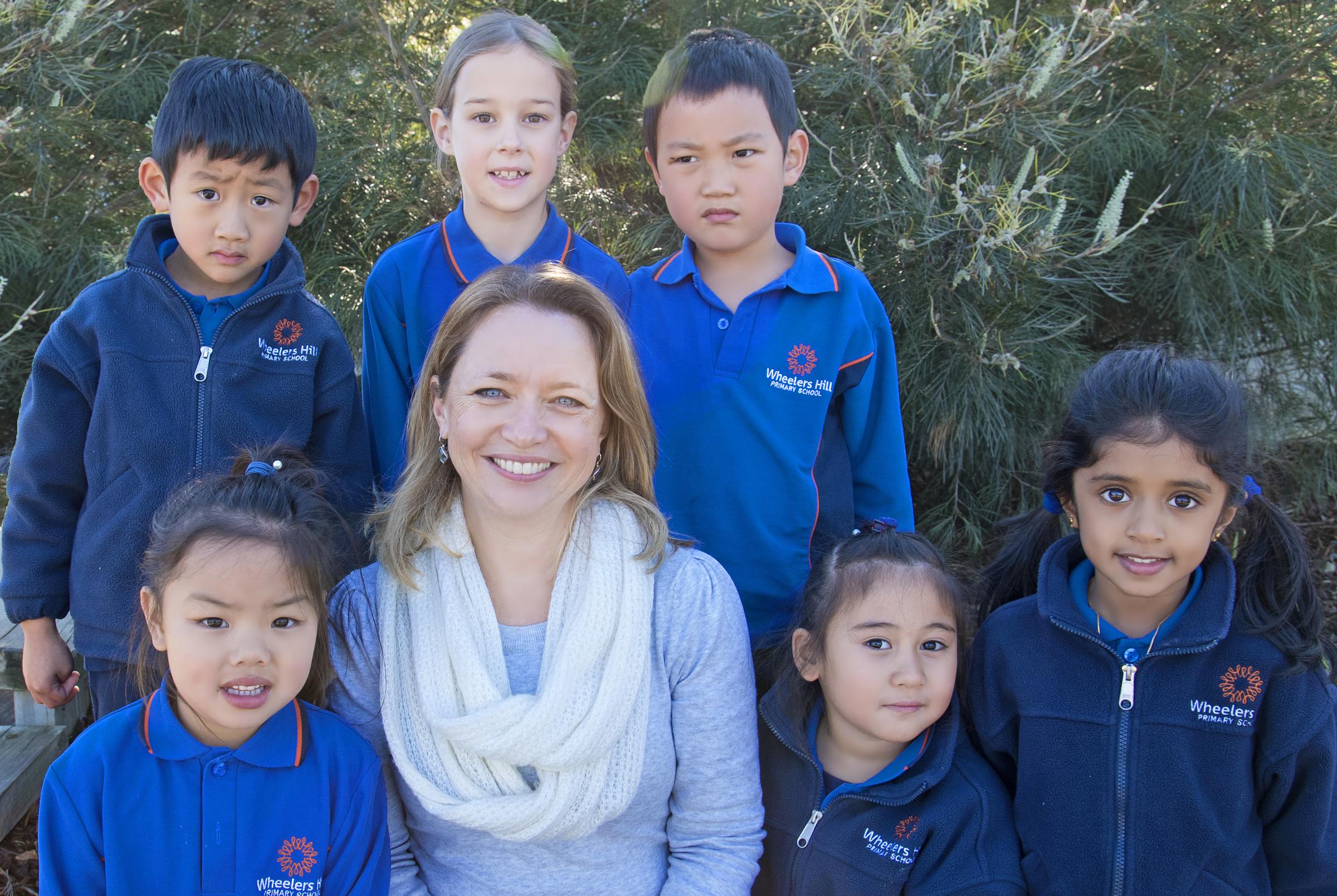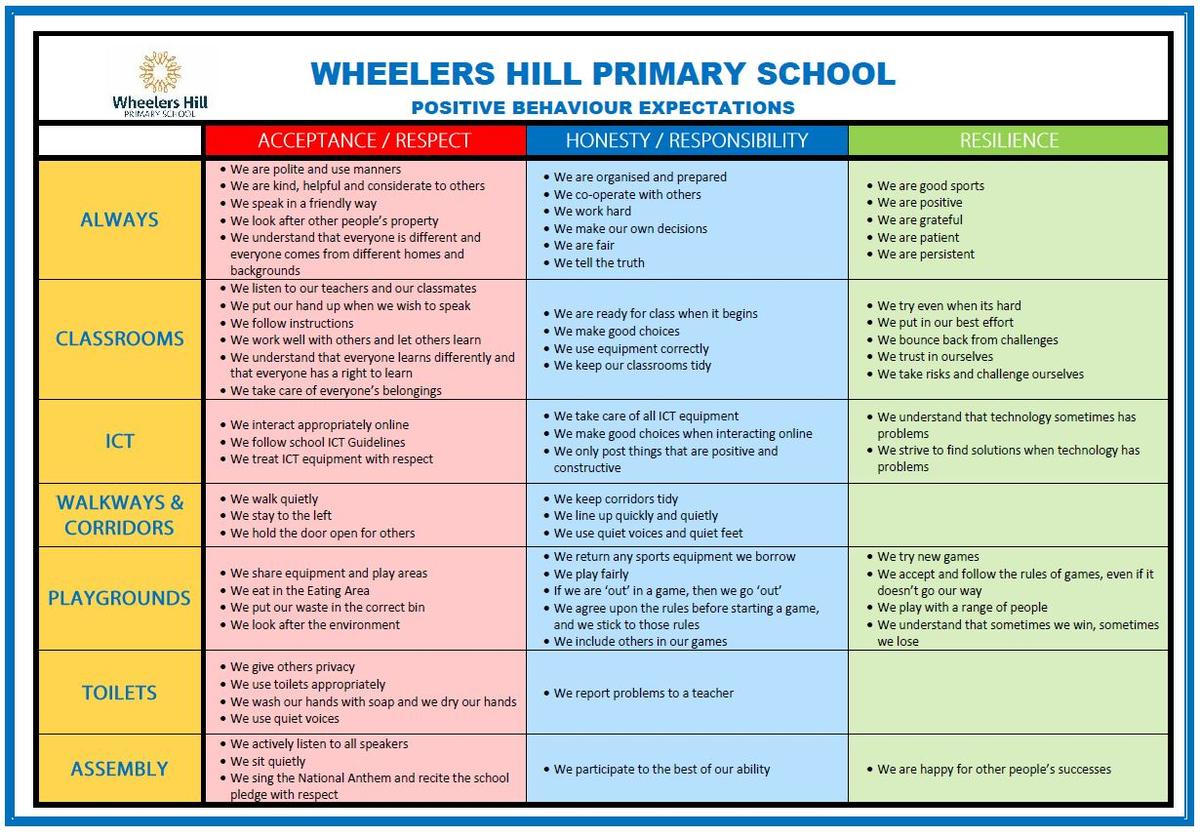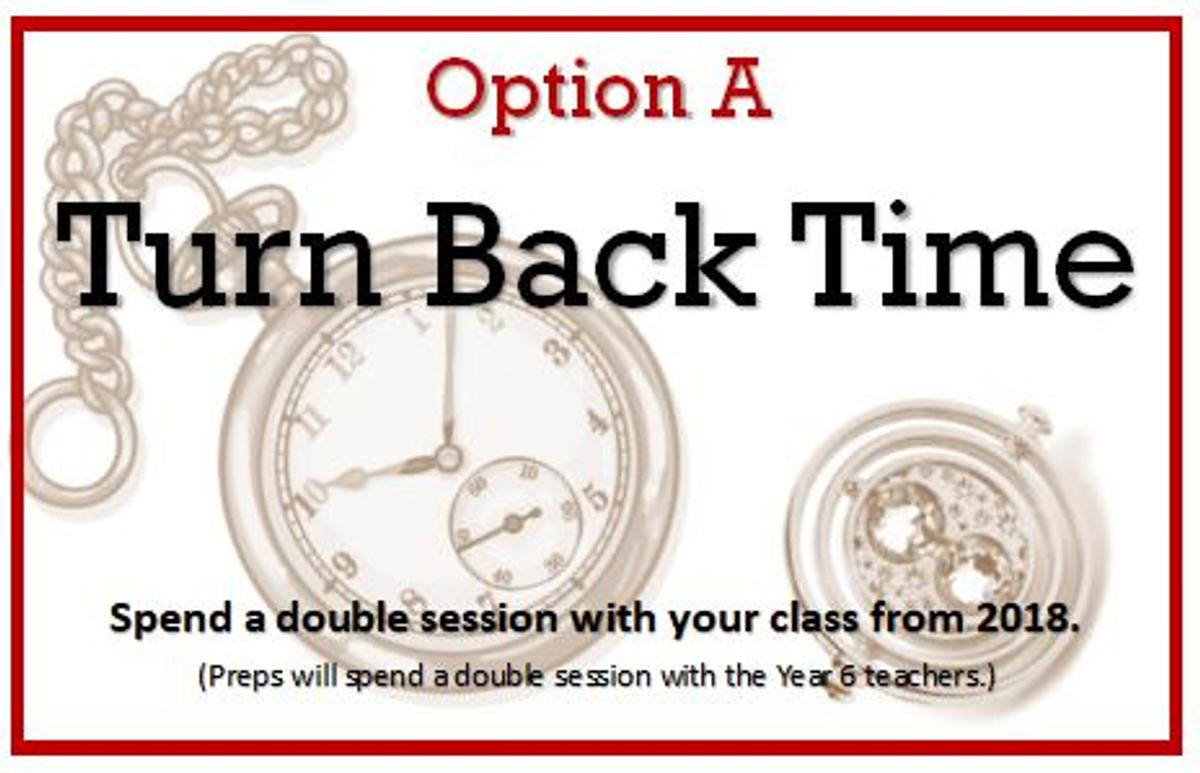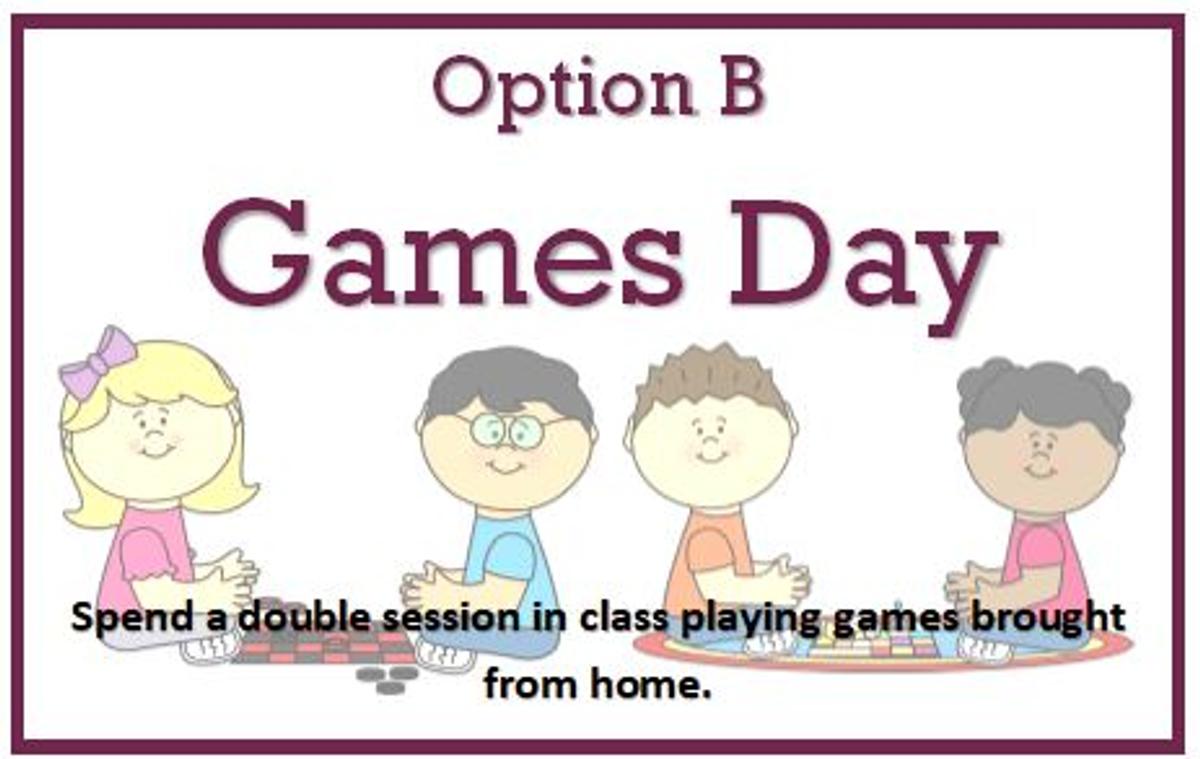Assistant Principal's Report Katrina Spicer - Welfare and Wellbeing

28th June, 2019
School-Wide Positive Behaviour Support (SWPBS)
Next term we are introducing a new positive whole school approach to behaviour management. Visitors to our school will notice new Positive Behaviour Expectations posters being placed around the school. These posters clearly state the behaviours we expect of our students in all settings at WHPS. The expectations have been grouped under the school values of Acceptance/Respect, Honesty/Responsibility and Resilience.
From the beginning of term 3, children will be presented with coloured counters (tokens) if a staff member notices them demonstrating one of these behaviours. The colour of the token reflects value under which the behaviour falls e.g. if a child demonstrates resilience, they will receive a green counter. The students will collect their tokens during the week, and on Fridays students will 'vote' with their tokens for a whole school reward which will be received at the end of term 3. The token collection point is located outside the Assistant Principals' offices.
The three options for a whole school reward in term 3 are:
This approach to behaviour management will enable consistency across the school in terms of language and expectations. Staff and students will use a common language to discuss behaviour and the students will have a clear understanding of what is expected in every area of the school.
Through this approach, teachers will be explicitly teaching these behaviours, much as we explicitly teach academics. Mistakes in behaviour will be treated as learning opportunities, much as mistakes in learning are treated as learning opportunities.
SWPBS is an evidence based framework which is used in schools world wide. When implemented well, teachers and students have more time to focus on relationships and classroom instruction. Students and staff benefit from:
* increased respectful and positive behaviour
* increased time focused on instruction
* improved social-emotional wellbeing
* positive and respectful relationships among students and staff
* a predictable learning environment
Parenting Ideas Article
Helping Kids Tolerate Discomfort
By Michael Grose
Few right-minded people want children or young people to experience hardships or difficulty. However growing up generally means that kids will experience their fair share of hardships, frustrations and challenges which lead to uncomfortable feelings.
Exercising their discomfort muscles
Tolerating discomfort is an important resilience skill. It refers to an ability to sit with an uncomfortable or emotionally painful feeling such as disappointment, apprehension, nervousness or fear. These emotions can be brought about as a result of not being picked for a team; getting lower than expected marks for an assignment; or going into a new, unfamiliar situation such as school camp. These are the sorts of everyday situation that can make some kids feel uncomfortable. It’s helpful to think of discomfort as a ‘muscle’ that gets stronger with training. Each time a child or teen successfully tolerates discomfort they’re reinforcing their ability to do so and cementing the knowledge that they can overcome emotional challenges.
Opportunities to practise tolerating discomfort
Opportunities for practise are plentiful and are found in common situations such as when a child or teen is: feeling hungry; wanting something they can’t have; having to end screen time; contributing to household chores when they don’t feel like it; missing out on a job interview; asking someone on a date or not receiving a party invitation.
It’s not toughing it out
Tolerating discomfort doesn’t mean toughing out an unbearable situation. It’s teaching your anxious child to notice how they’re feeling, naming their emotions, and practising acceptance of difficult feelings as they occur. This is done in the knowledge that what they’re experiencing is temporary and that they’re lovingly supported by a warm and comforting adult. Couple tolerating discomfort with social rewards (such as words of praise or shared fun activity) for coping behaviours and you’re helping to build their personal resilience.
Katrina Spicer
Assistant Principal - Welfare and Wellbeing




